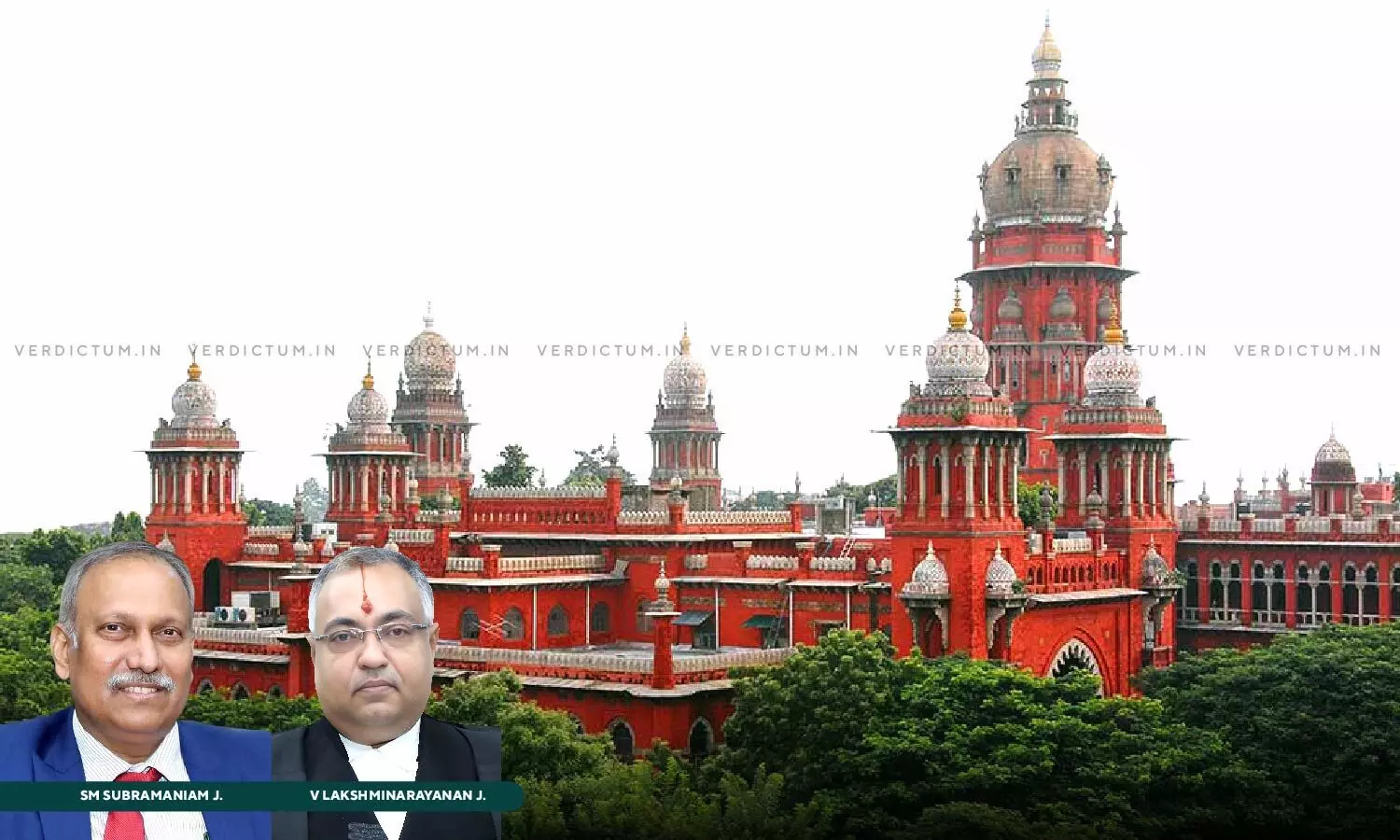
Madras HC Directs Authorities To Be More Cautious While Granting Or Cancelling Castes Certificates; Says It Has Larger Implications On Future Generation
 |
|The Madras High Court recently observed that authorities conducting an enquiry as to whether to grant or cancel community certificate should be cautious and should check each and every document produced by the parties to remove any ambiguities, as it has larger implications on the future generation of the family of certificate holder.
Accordingly, a bench of Justice S.M. Subramaniam and Justice V. Lakshminarayanan observed, “Grant of community certificate or cancellation of community certificate would have a larger repercussion and will affect the future generation of the family concerned. Therefore, the authorities competent while conducting an enquiry are expected to be cautious and each and every document produced by the parties is to be considered and a finding is to be made so as to remove any ambiguity in respect of the decision to be taken either to grant or cancel the community certificate. Any ambiguity would result in denial of basic right to the person, who seeks community certificate from the authorities”.
Senior Advocate R. Gandhi appeared for the petitioner and Additional Advocate General Veerakathiravan appeared for the respondent.
In the present matter, the order of District Level Vigilance Committee cancelling the community certificate of the writ petitioner was under challenge.
The petitioner belonged to “Kuravan” community, which is a scheduled caste community. Producing the community certificate, the petitioner participated in the process of local body elections and got elected as President of G. Kalluppatti Panchayat in the year 2019.
Subsequently, a rival candidate, who was unsuccessful in the election process, filed a complaint against the petitioner alleging that she had submitted a false community certificate and contested in the election.
Therefore, the community certificate is to be cancelled and consequentially, actions are to be initiated to remove her from the post of President. The District Level Vigilance Committee headed by the District Collector, Theni District conducted an enquiry based on the complaint and cancelled the community certificate granted in favour of the writ petitioner.
The petitioner to support her certificate had produced 62 documents before the District Level Vigilance Committee, however, none were taken on record in the impugned order nor any findings were recorded appreciating or rejecting the evidence for the purpose of forming a final opinion.
Noting the impugned order, the bench observed, “the missing part of the impugned order is the discussions about the documents and the findings in the Vigilance Cell report and appreciation of the evidences produced before the Committee”.
The bench further observed, “Since the order will affect the right of the petitioner and more so, she had already been elected for the post of President in local body elections, we are of the opinion that the matter is to be again remanded, though this Court normally would not resort to any remedy of remanding the matter. This case is an exception, wherein, we thought fit that the Committee has to go into the documents produced by the petitioner and the Vigilance report or any other report produced by the parties and make a categorical finding both factually and legally and thereafter, pass a reasoned order for arriving at a conclusion…”.
Accordingly, the impugned order was quashed and the Writ Petition was disposed of.
Cause Title: P. Maheswari v. The Secretary to Government